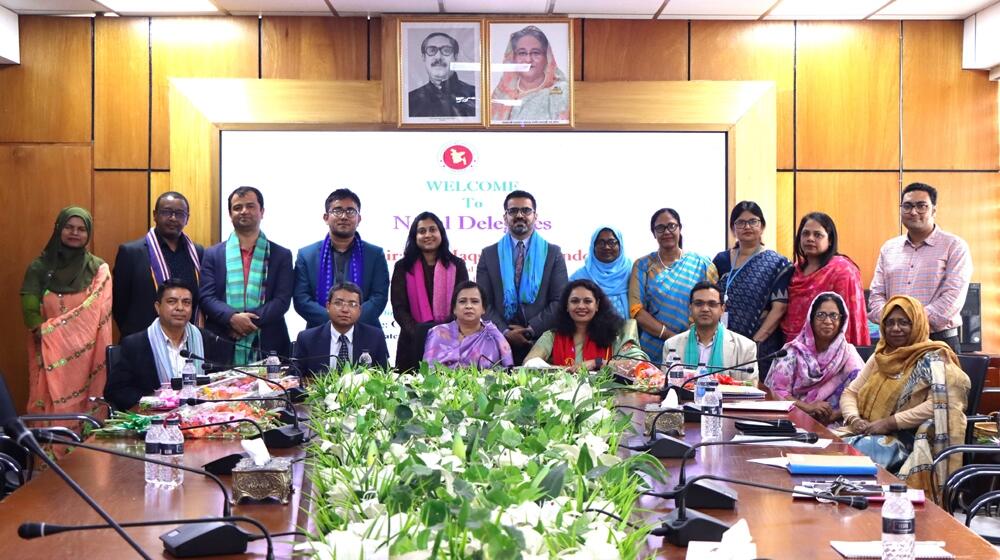Midwives save lives. Well-trained midwives working in a fully functional environment could help avert maternal and newborn deaths and could also deliver essential sexual, reproductive, maternal and newborn health services. Yet, in many parts of the world including Bangladesh and Nepal, they are in short supply.
UNFPA works in response to this, to help build a competent, well-trained midwifery cadre by strengthening competency-based midwifery training; developing strong regulatory mechanisms to ensure quality services; raising the voices of midwives by establishing and strengthening midwifery associations; and advocating for increased investments in midwifery services. As part of this, the UNFPA Country Offices of Bangladesh and Nepal embarked on a South-South collaboration to bolster the development of professional midwifery in both nations.
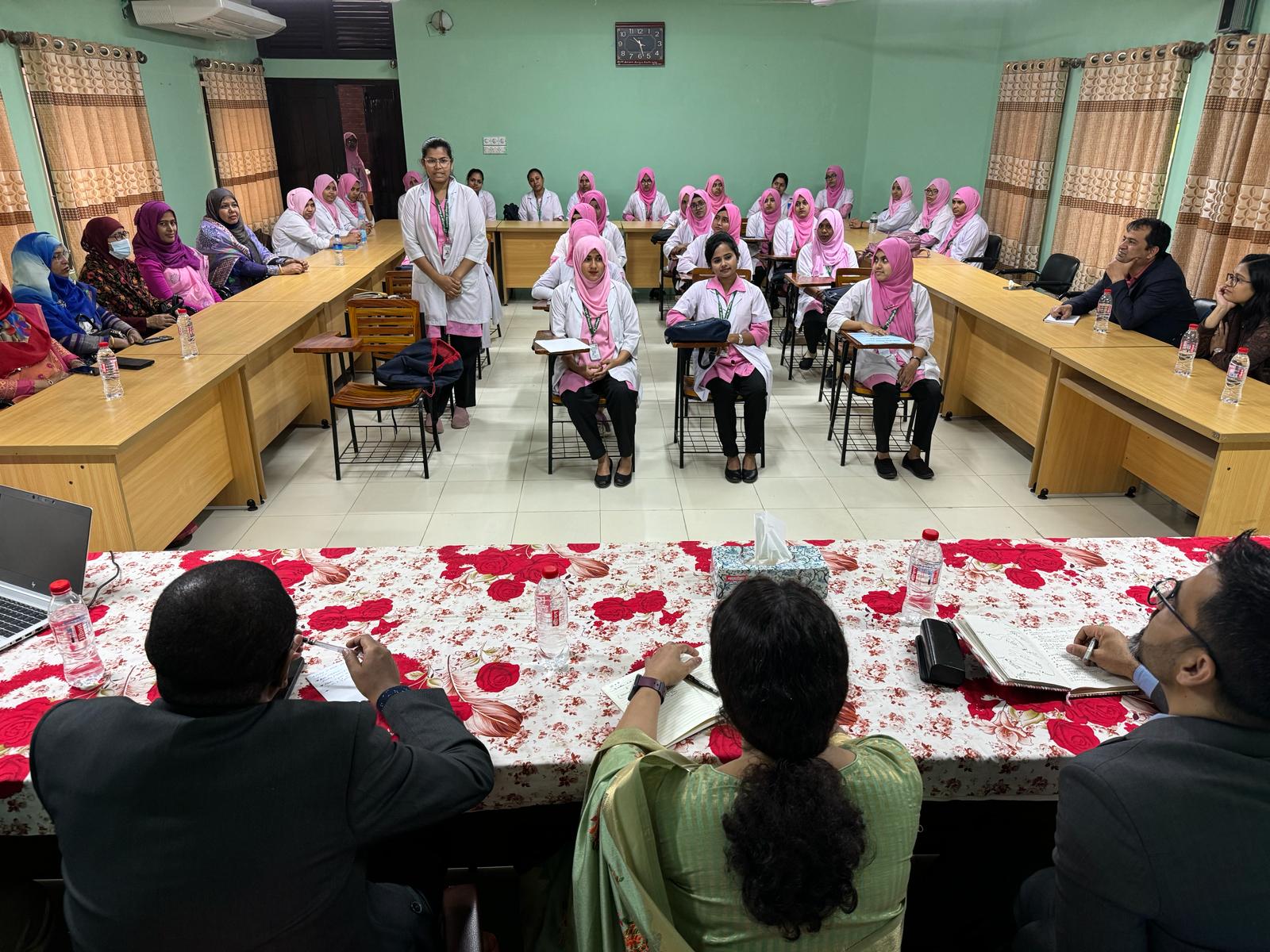
Visiting a midwifery school in Bangladesh
This initiative sought to strengthen each country’s national midwifery programme and to synergise midwifery development across the region, in collaboration with UNFPA’s Asia-Pacific Regional Office. Nepal and Bangladesh, both climate-vulnerable countries, have persisting challenges which call for accelerated efforts to achieve the Sustainable Development Goals - specifically a reduction in the Maternal Mortality Ratio (MMR) to 70/100,000 and universal access to reproductive health services. Thus, two-way collaboration is a platform for mutual learning.
In November 2023, the collaboration took a tangible step forward with an exchange visit to Nepal. The delegation from UNFPA Bangladesh, led by the Country Representative, Chief of Health and the Midwifery Team, accompanied by the First Secretary of the Embassy of Sweden, immersed themselves in the intricacies of Nepal's midwifery programme.
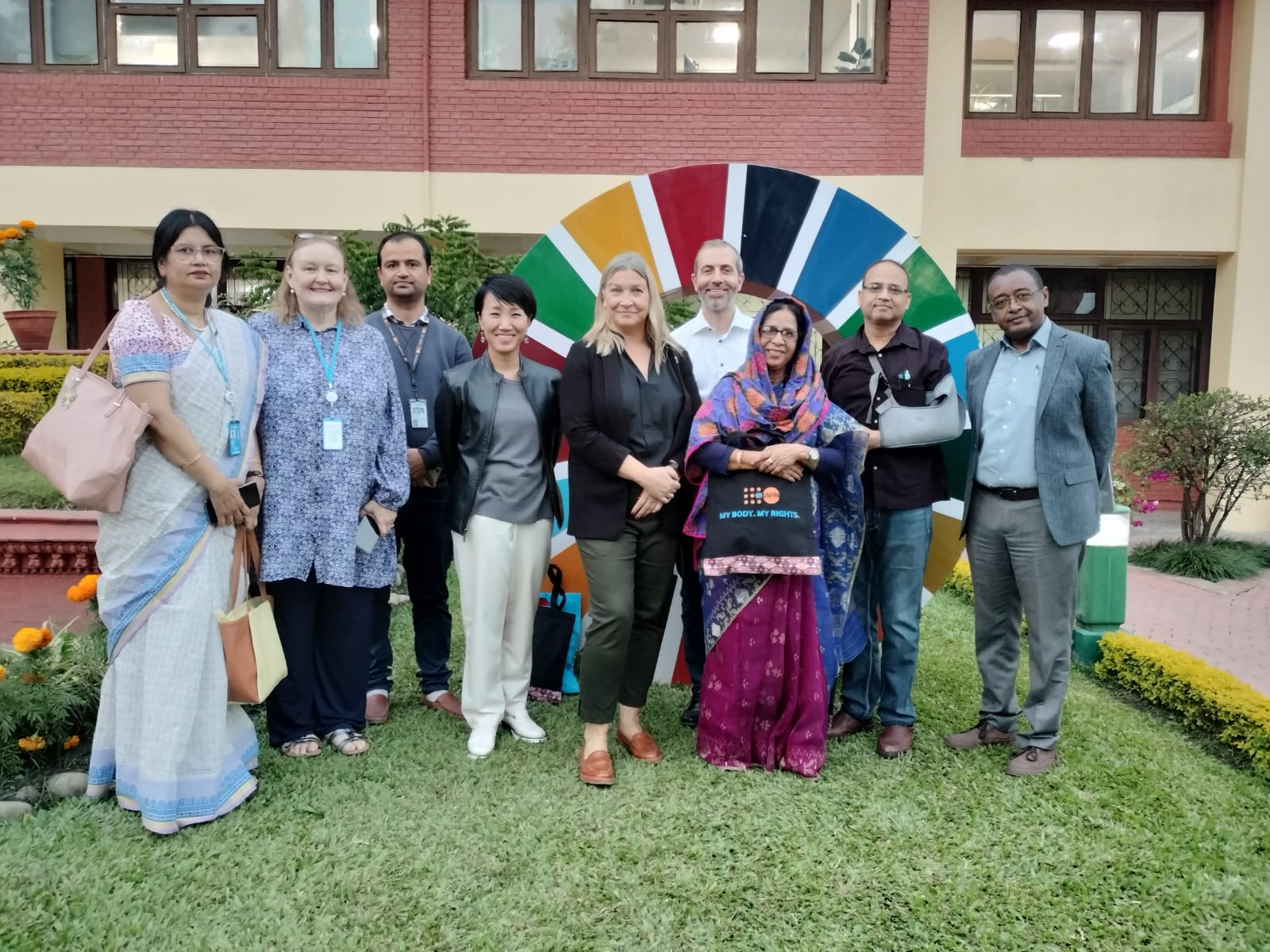
UNFPA Bangladesh and Nepal teams in Kathmandu
A reciprocal visit in February 2024 brought a delegation from UNFPA Nepal to Bangladesh, consisting of the Deputy Country Representative, SRHR Advisor, and SRHR Programme Analyst, and from the Government of Nepal, including the Ministry of Health and Population’s Director General of the Department of Health Services, Director of the Family Welfare Division, Under Secretary from the Department of Health Services, and two Medical Superintendents. The team met with key staff from UNFPA Bangladesh and visited the Directorate General of Nursing and Midwifery (DGNM), Bangladesh Nursing and Midwifery Council (BNMC) and various midwifery educational institutions. They also visited Dhaka Medical College Hospital to see the clinical placement of midwifery students and the fistula centre.
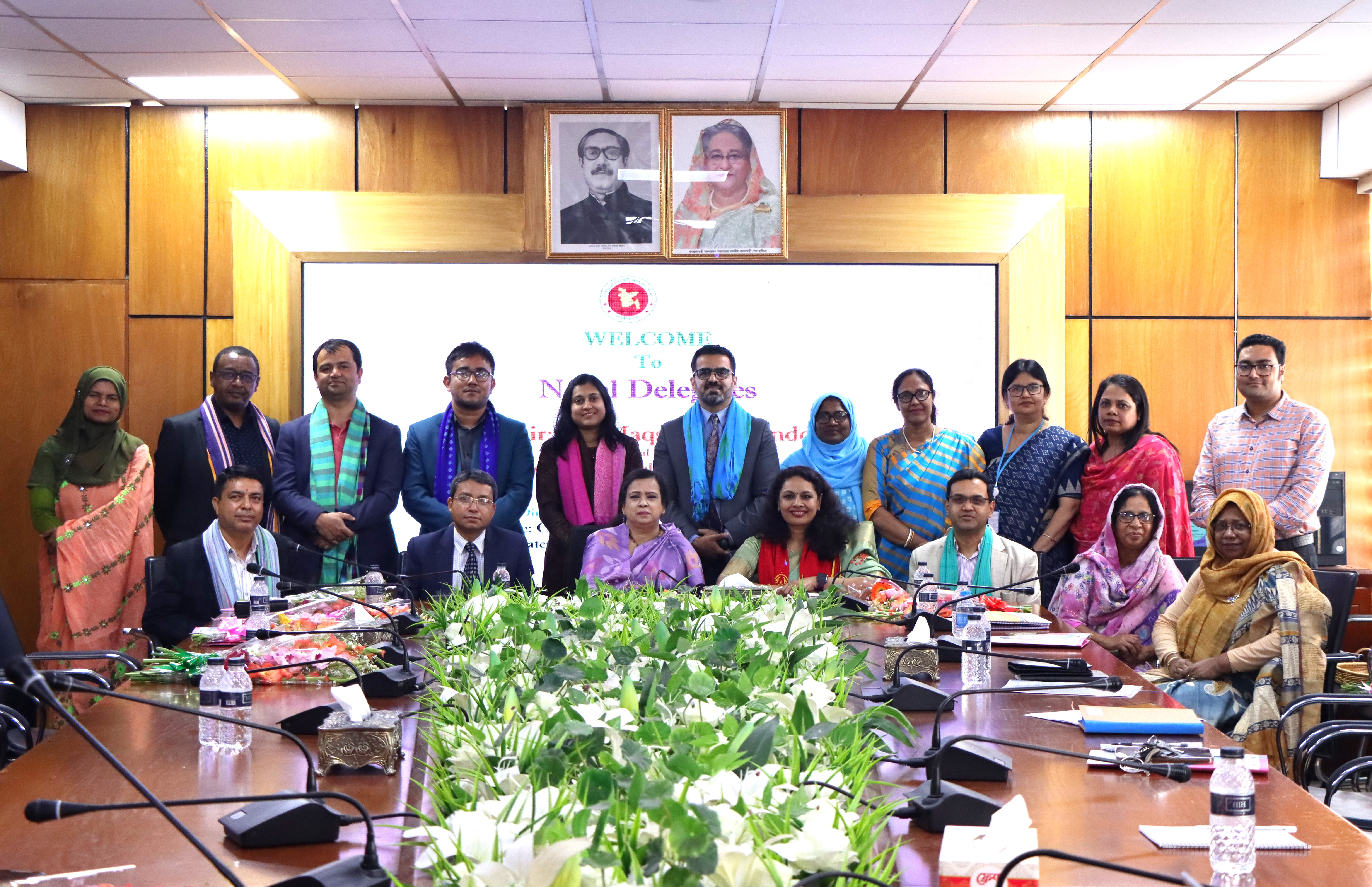
Visiting Directorate General of Nursing and Midwifery in Bangladesh (DGNM)
Field visits to various health facilities at different levels in Cox’s Bazar demonstrated the context in which midwives operate, from district to union levels and even in humanitarian response.
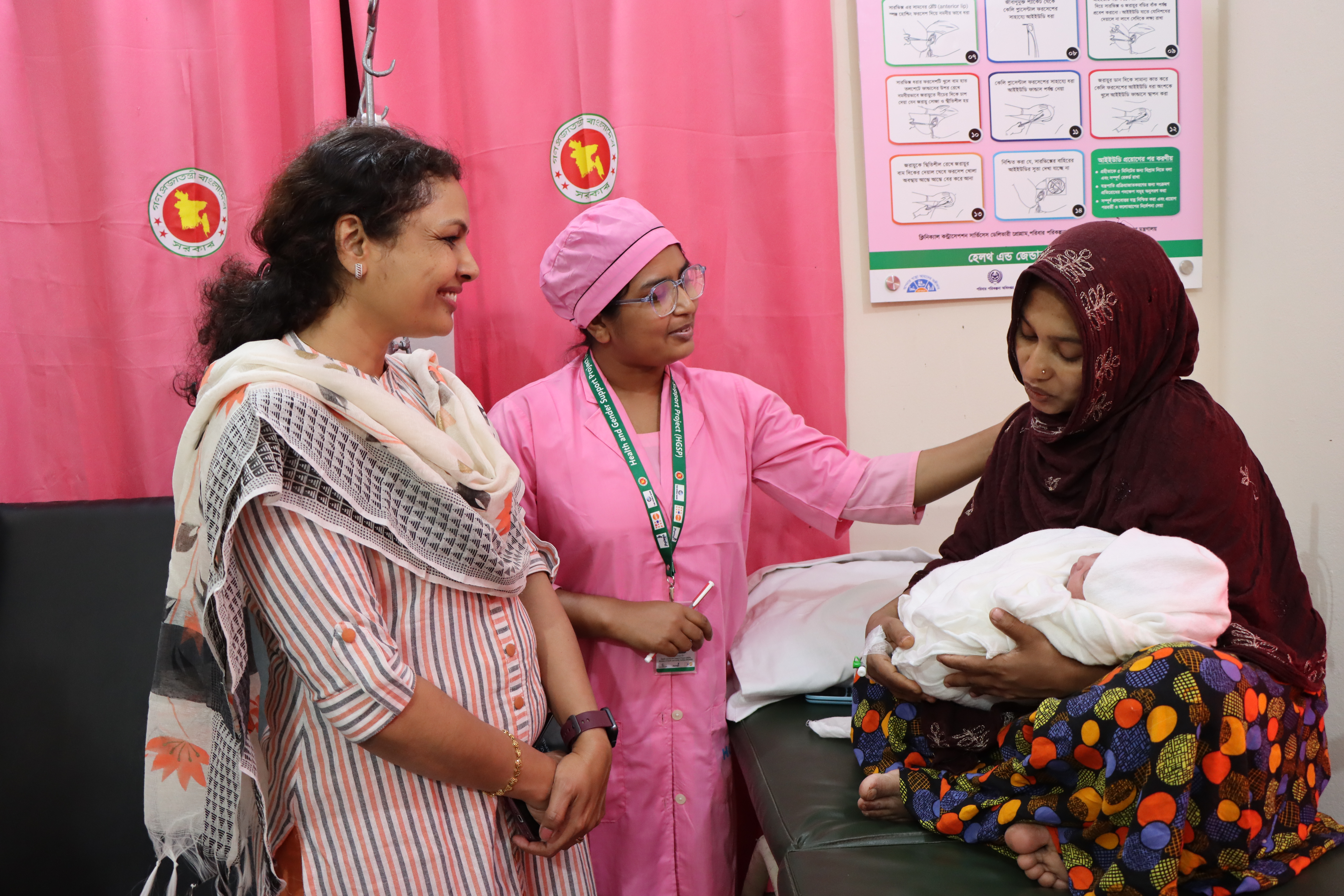
Dr. Sangeeta Kaushal Mishra, Director-General, Department of Health Services, Ministry of Health and Population, Nepal visiting a health facility in Bangladesh
The delegation was profoundly impressed by the overall state of midwifery education and services in Bangladesh. Midwives emerged as indispensable figures in saving mothers, ensuring that no one is left behind. The delegation recognised UNFPA Bangladesh’s pivotal role in coordination with the government and its effort to advocate for the deployment of midwives at every health facility, even in the most remote settings, ensuring universal access to maternal and reproductive health services for all women. They were also pleased to see how maternal healthcare services are being provided to both Rohingya refugees and host communities in the Cox’s Bazar area.
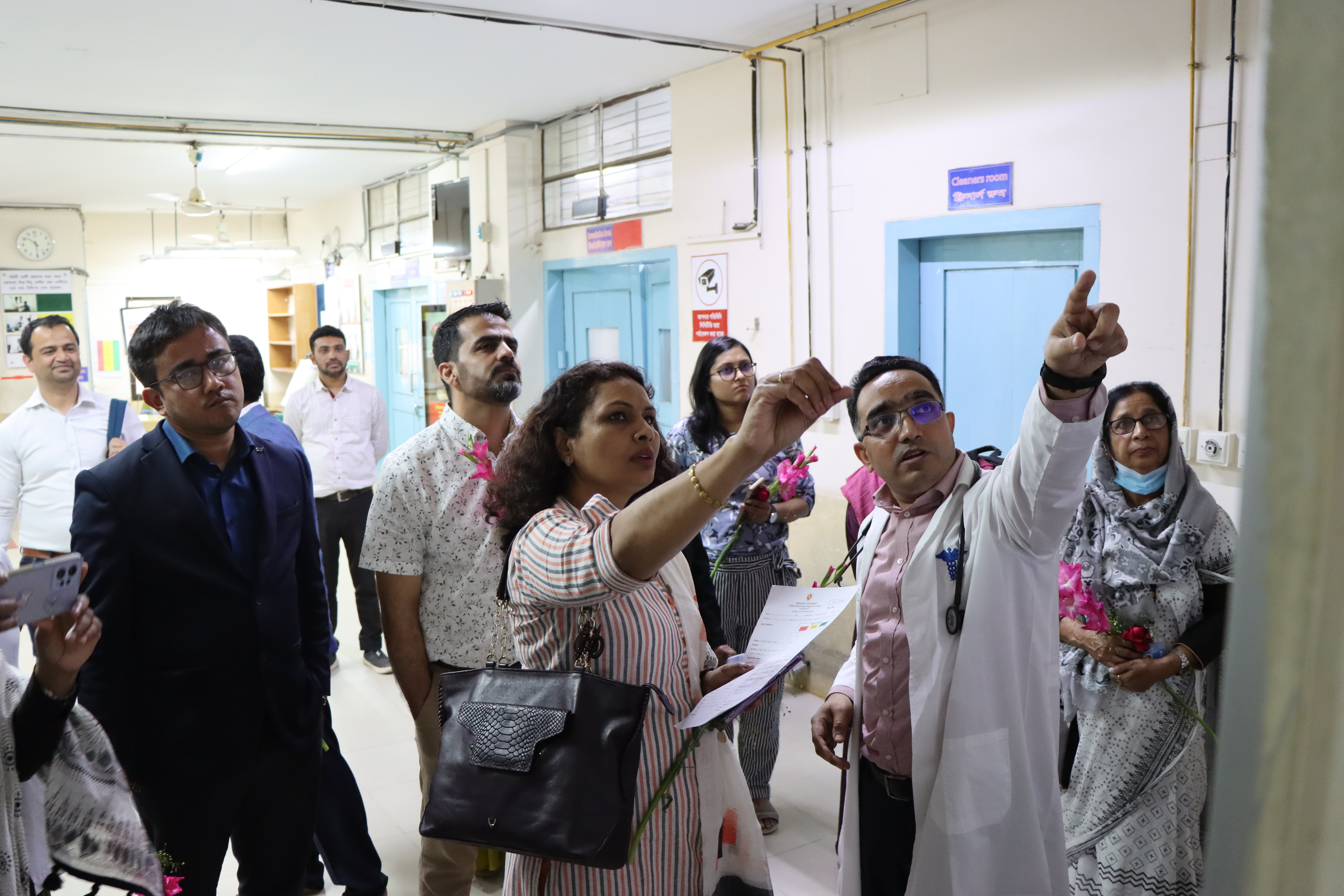
Visiting the District Hospital in Cox’s Bazar, Bangladesh
Finally, the team met with the First Secretary of the Embassy of Sweden in Bangladesh. He was pleased to see the collaboration between the two country offices on the midwifery programme and suggested working on climate change and its impact on women and girls, focusing on the vulnerabilities of sexual and reproductive health services during a climate crisis. He emphasized that there is much to learn from each other in these domains.
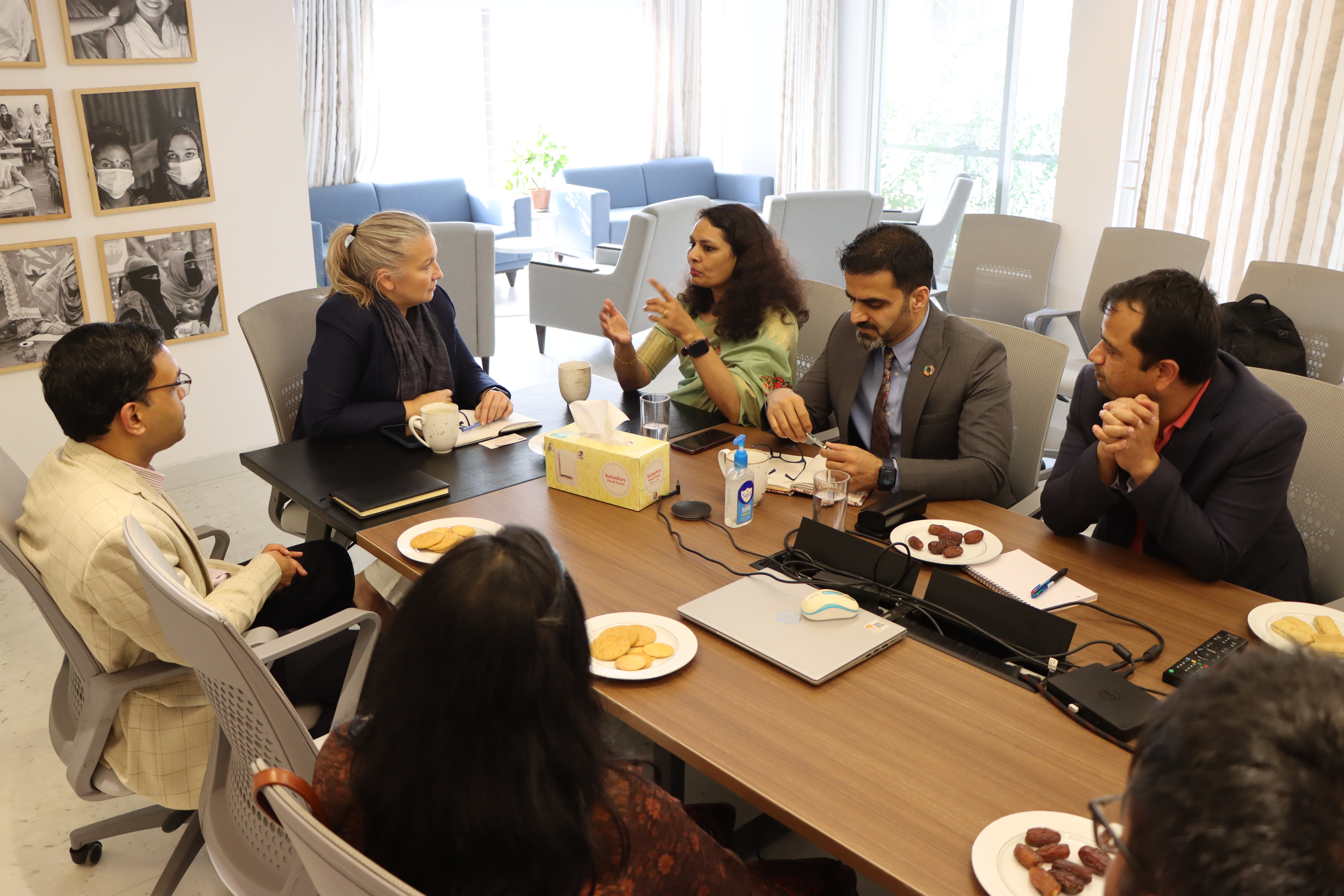
Nepal delegation meeting UNFPA Country Representative in Bangladesh
At a visit to a health facility, Dr. Sangeeta Kaushal Mishra, Director-General, Department of Health Services, Ministry of Health and Population, Nepal said in her closing remarks:
"We have heard so much about the Bangladesh health system model. It is highly encouraging that I got to see what goes on the ground. It has given me a good insight and a good understanding, and now I can relate to how Nepal's health system is doing and how we can work together. It's very encouraging to see all these midwives. And the most important thing that I realised is that (in this health facility) you have a high rate of normal delivery and a decreasing C-section. So, congratulations on that!"
Members of the Nepal delegation expressed:
“Midwives in Bangladesh are playing a crucial role for saving mothers, reaching from the heart of communities to the furthest corners. Their presence, extending even to floating ship hospitals, embodies the unwavering commitment to ensuring every woman's access to maternal health services aiming for ‘no one left behind’. Appreciating UNFPA Bangladesh's advocacy and strong collaboration with the government, we recognize the transformative impact of a dedicated force in safeguarding the journey of motherhood for all”.
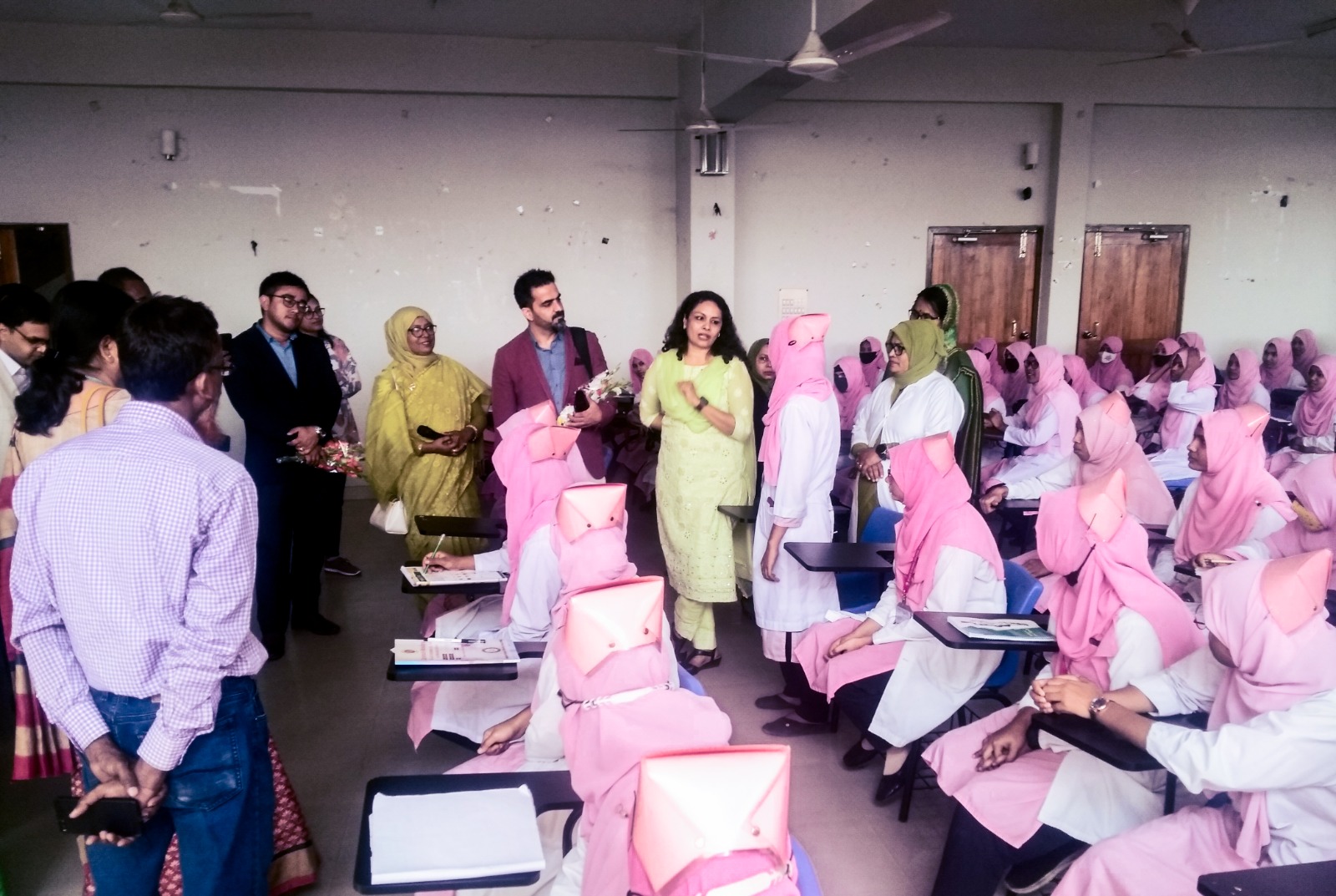
Nepal delegation meets student midwives at Dhaka Nursing College
This South-South collaboration not only strengthens the individual capacities of Bangladesh and Nepal but also lays the groundwork for a transformative regional initiative, showcasing the power of collaboration in advancing maternal health across borders. We believe this will accelerate the achievement of one vision and three zeros: the end of preventable maternal deaths, the end of unmet needs for family planning, and the end of gender-based violence including harmful practices.

